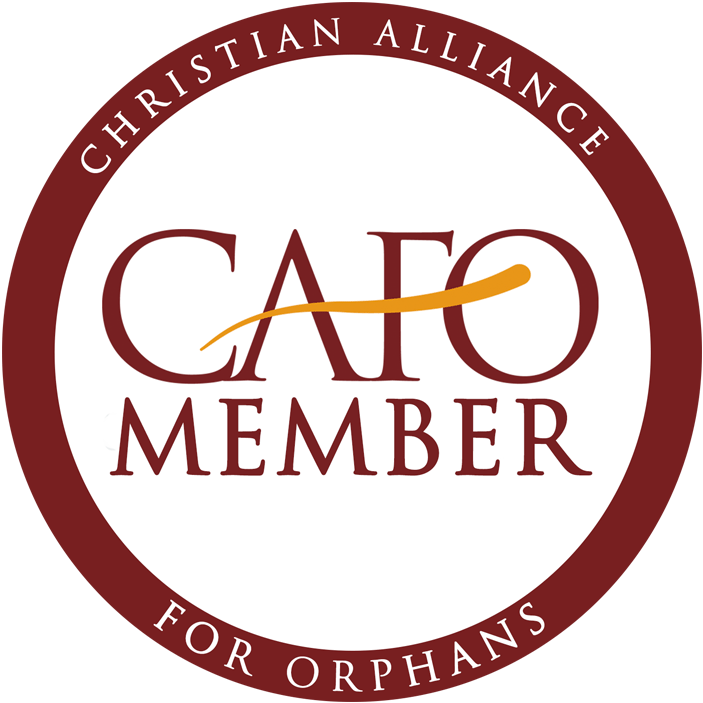
"While I was serving in his motherly role, I wasn’t trying to take her motherly role."
Meet Wendy Carlton, a foster and adoptive mom who found joy in fostering, and in developing a meaningful relationship with her child’s biological mother. Learning more about the mother’s history helped Wendy understand the need for good mentors and role models. “She couldn’t be a good mom or role model because she never had that herself,” says Wendy. The story of how God orchestrated the details of their foster placement will help you grow your trust in God’s timing.
Wendy’s Story
Wendy and Ty Carlton began the process of becoming foster parents in the spring of 2015. She had heard a speaker from Royal Family Kids Camp talk about the need and it birthed in her a desire to do something. However, several obstacles got in the way. So many, in fact, that Ty suggested that maybe they should take a step back and wait.
Although she was frustrated and disappointed at the slowdown, she knew she couldn’t force Ty to change, so she started praying for God to change her husband’s heart.
Later that spring, Ty, who is a police officer in their community, was involved in a drug bust. One of the people arrested was a young, addicted mother who was breastfeeding her infant daughter. Ty took the baby to the ER and stayed with her for hours while they waited for DCFS to pick her up. During that time, Ty’s heart was changed.
In fact, Ty came home and woke Wendy up in the middle of the night to tell her, “We need to do this [foster care]!” She didn’t really know, or need to know the details of how his heart changed, she was just happy that they were both on the same page when it came to foster care.
A few months earlier in January, Ty had just started in the drug/gang unit. He had pulled a car over and during the course of that interaction, another car of young men drove past yelling at him and acting oddly. So he pulled that car over as well and found that there were drugs and scales and money, indicating the sale of drugs, in the car. The possibility of manufacturing and delivering drugs prompted a search of the man’s home.
They went to the home where Ty found a girl who was three months pregnant. They talked about the drugs and the adverse effect they would have on the baby and the girl ended up becoming an informant for the police department.
When she gave birth months later, the baby’s father was in jail and she had a breakdown. The baby, Oliver, was placed into foster care. Strangely enough, it was Wendy and Ty who were called for the placement. They were caring for the son of the man who had driven the car and screamed the obscenities and the woman at the house.
This amazing “coincidence” was proof to Wendy that God had a specific baby in mind for Wendy and Ty to bring home—God’s timing was perfect, and there was purpose in the painful season of waiting.
Bringing Oliver Home
Oliver came to the Carltons’ home when he was about 8 months old. At the time, the Carltons’ other children were 12, 18 (in college), and 20 (already out of the house). “So it was an adjustment!” laughs Wendy.
One of the many adjustments they faced was that Oliver was developmentally delayed. When he was 9 months old, he tested at about the 6 month range. However, after receiving good nutrition and care, Oliver tested three months ahead when they tested him again at 12 months. “It just shows that attention and nurturing go a long way,” says Wendy.
Developing a Relationship with Oliver’s Mom
They had been caring for Oliver for a couple of months when Wendy felt the call to reach out to Oliver’s birth mom. “I knew her back story because of my husband, and I realized how broken his mom was—she needed a parent figure in her life, too.”
When Wendy talked with the DCFS case worker, she was encouraged to build a relationship, but also to build it slowly. She started out by writing notes and sending pictures. They moved on to lunches, playdates and even hair appointments. Wendy took the mom under her wing: “God also gave us Oliver’s mom—but she had to get to the point that she realized she needed help, too.”
Wendy and Ty started fostering Oliver in May, and by December his mom realized she couldn’t be the mom she wanted to be. She started talking about surrendering her rights. “It was a bittersweet feeling,” says Wendy. “I have never felt such happiness and deep sadness at the same time.”
The Carltons knew that Oliver’s mom loved him, but she couldn’t provide for him emotionally or financially. After months of no progress and an imminent termination, she asked the Carltons to keep Oliver and surrendered her rights. “It was heartbreaking to watch a mom give up her rights,” Wendy remembers. “It was just devastating to watch the pain the bio parent goes through.”
Maintaining a Relationship
At first, Wendy admits she feared the birth family, but now she feels that fostering is an outreach that shows not only the child, but also the family how much God loves them. That was a true change of heart for her—originally she didn’t want to be involved with the birth parents. Then she learned about Oliver’s mom. Now she fully believes that reunification is God’s plan.
“My job as a Christian is to help them try to be a better parent,” says Wendy. “If all I did was take care of Oliver and didn’t help his mother learn how to be a better mom, I wouldn’t have been doing all that God called me to do.” Equipping the family to get their children back is also part of her role as a foster parent.
Even now that the Carltons have adopted Oliver, Wendy still has a relationship with his birth mom. They exchange texts at times and Oliver’s birth mom will ask for prayer or help.
Suggestions for Building a Relationship with Birth Parents
Wendy suggests a few specific ways to build a relationship with the parents of children in foster care:
- Get a notebook and write notes back and forth. Not all birth parents are safe, so you have to test the waters.
- Along with notes, share pictures so the birth parents can see how their child is growing and thriving. Be prepared for the possibility that you might not get a response at first. “Oliver’s mom never responded to the notes I sent,” says Wendy. But when they met at a court hearing, she cried and said the notes meant so much to her because she knew Oliver was in a safe place.
- Get a texting app so that you don’t have to share your phone number—at least at the beginning. Use the app to build trust and perhaps eventually you can share your phone number.
“Take baby steps,” suggests Wendy. Start slow and add activities or share information as the relationship builds. You still need to be safe and keep the child safe while growing the relationship.
Wendy and Oliver’s mom eventually got to the point that they did outings together—lunch or other casual get-togethers. It was still eight or nine months before she felt comfortable sharing her personal phone number. “Every case is different—you need to have good boundaries.”
Wendy was also very conscientious about having Oliver’s mom still have “mom” status with Oliver. When they had a birthday party for Oliver’s first birthday, they invited his mom to come—it was actually the first time they had met. Wendy also let Oliver’s mom help with his presents and do the “cake smash.”
“I didn’t want to take Oliver’s mom status away from her—and she was very grateful for that,” explains Wendy. By this point, Wendy had heard more of the mom’s own story and knew that she didn’t have a good home or role model—“She couldn’t be a good mom/role model because she never had that herself.”
What about negative relationships with birth families?
Foster parents know that there’s no guarantee that the birth family will appreciate that their child is in someone else’s care—a good relationship isn’t a sure thing. Wendy’s advice for those situations is prayer. Pray about the relationship with the birth parents and the relationship with the child.
“God put that child in your home for a reason,” she says. Additionally, if the relationship isn’t great, be mindful of keeping the struggles away from the child—don’t let the child have to battle that issue as well. Let your home be a shelter and a place of refuge and always show respect to the birth parents and other family members.
RESOURCES FROM TODAY’S SHOW
Wendy’s Personal Facebook
Wendy’s Personal Instagram
TFI Bloomington Facebook
Royal Family Kids Camp in Central Illinois
The TFI Story
Who Loves Series
Find a TFI Advocate Near You
Become a TFI Advocate
Hopefully, this episode has helped you right where you are on your foster care journey. That’s the goal. If you enjoyed it, will you tell others?
The best way to do that is to rate the podcast on Apple Podcasts and leave us a brief review! Your ratings and reviews help us get this podcast in front of new listeners. Your feedback also lets us know how we can better serve you. Thank you so much!

Meet Our Guest
Wendy and her husband, Ty, are the parents of four children. Wendy is the volunteer coordinator for the Bloomington, Illinois, TFI Advocate area and is the Director of a Royal Family Kids Camp in Central Illinois. Wendy’s desire is to be the hands and feet of Jesus—to hear the still small voice of God and stretch her faith through serving Him, and to share the good news of forgiveness with others!
Get practical episodes and updates in your inbox.
Be the first to know about new episodes, posts, resources, and stay in the loop about what’s coming up.
Other Episodes You Might Enjoy:









